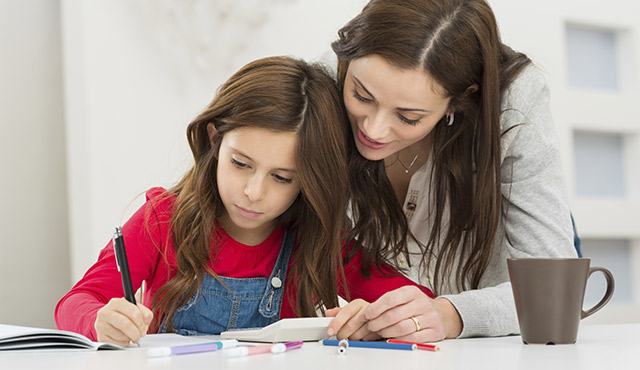It is late afternoon and a harried mom is leaving the grocery store with a heavy cartload of bags, two grouchy kids and several errands still ahead. After unloading the bags, she looks around and frowns as she sees the cart return located on the opposite side of the parking lot. Grabbing her four-year-old by the hand, she walks back across the lot and puts the cart where it belongs–to loud objections from her child: “Why do we have to go aaaalll the way back here? Nobody else does.”
It is a small thing but, without saying a word, this wise mom just sent an important message to her kids about doing the right thing. According to Michael Josephson, president of the Josephson Institute of Ethics in Los Angeles, “It doesn’t make you a bad person if you don’t take your cart back, but it does make you a better person if you do.”
When it comes to teaching right from wrong to children, “You can’t compromise on helping your child become the good person you and they know they can be”, says Josephson. The earlier and the more consistent the parents are, the better. However, the single most important thing a parent can do to raise ethical children is to model ethical behavior to them, even with little things like returning a shopping cart.
Julie Rubio, a professor of Christian Ethics at St. Louis University, is the author of “Family Ethics: Practices for Christians.” She describes how family activities can strengthen ethical and compassionate behavior through activities that help form children’s Catholic values. “For example, families can adopt intentional practices that they do together because they are a Catholic family.”
In her own family, Rubio describes regular volunteering as a family at a local homeless shelter. Not only does it align with Catholic social teaching, but it also helps children think in broader terms than their own needs and wants. This is an important perspective because in order for a child to want to do the right thing, he or she must be able to appreciate the consequences. Doing good things makes children feel good about themselves; doing bad things does not.
Josephson points to his six pillars of character as the building blocks for parents and children to become ethical adults:
Trustworthiness: Integrity comes from consistency in beliefs, words and actions.
Respect: Honor the dignity of all individuals.
Responsibility: Exercise accountability and self-control.
Fairness: Treat people equitably.
Caring: Be forgiving and compassionate.
Citizenship: Obey the law and participate in democracy.
With children, pre-teaching by both discussing expectations and consequences and modeling ethical behavior is better than waiting for a transgression to occur. Parents cannot follow their children everywhere, and a child, at some point, will figure out that telling a lie might enable them to avoid punishment. Teaching right from wrong needs to begin when children are very young, and must be paired with appropriate consequences.
“Parents cannot be afraid to discipline, and must be prepared to be disliked, or else the child will end up disciplining the parent,” says Josephson. “They need to set loving but firm standards and not back down. This begins with enforcing consequences commensurate with the seriousness of the transgression. In other words, if a teen lies and sneaks out to a party, that is a much more serious situation than failing to make the bed. A parent cannot negotiate away consequences.”
The bottom line is that good kids and good parents are not necessarily perfect, but they know when their behavior falls short, and they do their best to improve.

